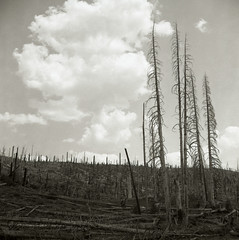The City of Oakland Public Works Agency (PWA) had its first public workshop to identify, evaluate, and prioritize actions it can take to becoming a model sustainable city. The city intends to do this by reducing and optimizing energy use and greenhouse gas emissions. The PWA, under direction of a sustainability coordinator, is drafting an Energy and Climate Action Plan (ECAP) that will be submitted to the Oakland City Council to clarify its policy and recommend priority actions.
The stages of the process include initial public input, early research and analysis, setting targets and objectives, plan development, plan presentation, and a comment period. The second public workshop will be in Spring 2009, with a goal of presenting the ECAP to the City Council in Fall 2009.
During the first meeting, the attendees were asked for input in four areas:
- What do you see as the main purposes and benefits for Oakland by addressing climate change locally?
- What should the City consider in deciding which greenhouse gas reduction actions to implement?
- What actions should the City take to reduce energy use and greenhouse gas emissions?
- What other suggestions do you have that might help the City develop its ECAP?
City of Oakland, Public Works Agency
250 Frank Ogawa Plaza, Suite 5301
Oakland, California 94612
climateaction@oaklandnet.com
For more information, please visit http://www.sustainableoakland.com/
